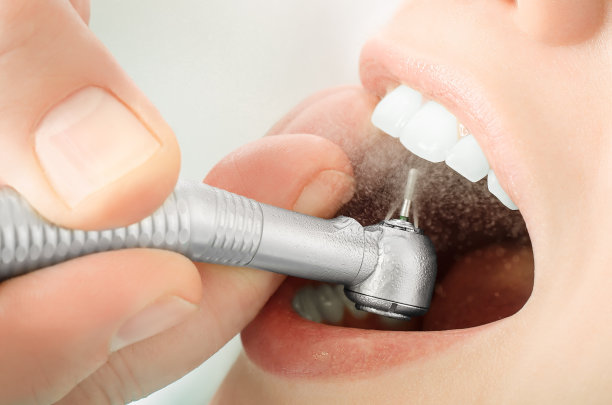Summary: Root canal treatment can be a daunting experience for many patients, yet it is essential for saving damaged teeth and preserving oral health. This article offers valuable tips to ensure a successful root canal treatment while minimizing potential complications. The focus is on selecting a qualified dentist, understanding the procedure, following post-treatment care, and recognizing potential warning signs. By adopting these essential practices, patients can enhance their chances of experiencing a seamless treatment process, ensuring both physical comfort and peace of mind.
1. Choosing the Right Dentist for Your Procedure

The selection of a qualified dentist is one of the most critical steps in ensuring a successful root canal treatment. Begin by researching local dental professionals who specialize in endodontics, which focuses on the treatment of the dental pulp and surrounding tissues. Check credentials and experience, as a dentist with a solid track record is more likely to provide quality care.
Additionally, consider asking for recommendations from family or friends. Personal experiences can give you valuable insights into a dentists approach and bedside manner. Online reviews and ratings can also provide a broader perspective on patient satisfaction.
Lastly, don’t hesitate to schedule a consultation before your procedure. This allows you to discuss any concerns, understand the treatment plan, and assess your comfort level with the dentist. Feeling at ease with your practitioner is essential for a successful outcome.
2. Understanding the Root Canal Procedure Itself
Gaining a comprehensive understanding of the root canal process can significantly alleviate anxiety related to the treatment. A typical root canal involves the removal of infected or inflamed tissue from the tooths interior, followed by cleaning and shaping the canal before it is sealed. During the procedure, local anesthesia is usually administered to minimize discomfort.
Patients should also be educated about the potential duration of the procedure, which can vary based on case complexity, but usually lasts between one to two hours. Having realistic expectations will help manage concerns and facilitate a more positive experience.
Furthermore, inquire about the tools and technologies used during the procedure. Modern advancements such as rotary endodontics and digital imaging can enhance precision and reduce treatment time, contributing to a successful outcome.
3. Following Essential Post-Treatment Care
Post-treatment care plays a significant role in the recovery process after a root canal. Patients are typically advised to follow specific guidelines to promote healing and minimize discomfort. Staying away from hard or sticky foods for at least 24 hours post-treatment can help avoid unnecessary strain on the tooth.
Additionally, adhering to prescribed medications, including analgesics or antibiotics, is crucial. These medications help manage pain and prevent infection, reducing the risk of complications. Make sure to follow the dentists instructions regarding their usage.
Regular follow-up appointments are also essential for monitoring healing and addressing any concerns. If you experience prolonged discomfort or swelling, seek professional advice promptly to prevent further complications.
4. Recognizing Warning Signs After Your Treatment
Being vigilant about post-treatment symptoms can prevent complications and ensure timely intervention. Its important to be aware that some mild discomfort is normal after a root canal, but certain signs can indicate potential problems. Persistent or severe pain, especially if it worsens over time, should not be ignored.
Swelling or tenderness in the gums surrounding the treated tooth can also be a red flag. This could indicate an infection or improper sealing of the canal. If you notice drainage or a bad taste in your mouth, it’s crucial to consult your dentist immediately.
Staying proactive and informed about your dental health can lead to better outcomes. Regular oral hygiene and routine dental check-ups are equally vital to maintaining the success achieved through the root canal procedure.
Summary:
In conclusion, ensuring a successful root canal treatment requires careful consideration in choosing the right dentist, understanding the treatment procedure, adhering to post-treatment care, and recognizing warning signs. By following these tips, patients can significantly minimize potential complications and enhance their overall experience.
This article is compiled by Vickong Dental and the content is for reference only.
Vickong Dental
Vickong Dental is a large medical group established in Hong Kong in 2008 by professors from well-known medical universities in Guangdong and Hong Kong, as well as medical doctors from key national '985' universities (including Master's supervisors and senior professors). The chain of branches brings together expert dentists with PhDs and Master's degrees from Hong Kong and Mainland China, committed to providing high-quality dental treatment.
"Vickong Dental Practices the University Motto of 'Healing and Serving Society,' with a Stable Operation for Sixteen Years. It Has Been honored with Hong Kong Enterprise Leaders's Choice,' and is a Global Trusted Implant Center for the Nobel Implant System. Recommended by Hong Kong Metro Broadcast and Guangdong Television, it Serves Customers from Over Thirty Countries and Regions, Gaining the Trust and Favor of Citizens from the Guangdong-Hong Kong-Macau Greater Bay Area and Surrounding Cities.

Thousands of customers' unanimous praise
The most recognized and highly recommended dental service by customers in the Guangdong-Hong Kong-Macau Greater Bay Area
We Ensure You Receive Detailed Care and Attention Here
Hong Kong standards, Shenzhen prices, Your Trusted English-speaking dentists

Vickong Dental Medical-Grade Instrument Disinfection Process
Vickong Dental Medical-Grade Instrument Disinfection Process

Vickong Dental Chain: A Warm and Comfortable Environment for Treatment






Appointment Hours

Q&A
Why choose Vickong Dental?
Vickong Dental practices the university motto 「Medicine to Benefit Society」, with each branch bringing together highly qualified dentists with doctoral and master’s degrees from Hong Kong and the Mainland, and has maintained seventeen years of steady operation。Recipient of 「2024 Hong Kong Enterprise Leaders Brand」, 「2025 Hong Kong Enterprise Leaders Brand」, a Nobel Biocare Global Trusted Implant Center, and a brand recommended by Metro Radio Hong Kong and Guangdong TV。
To date, we have served customers from more than thirty countries and regions,earning exceptionally high word-of-mouth recognition and trusted recommendations from residents across the Guangdong-Hong Kong-Macao Greater Bay Area and surrounding cities
We have eight major branches in Zhuhai、Shenzhen,and a consultation and service assurance center in Hong Kong,so you can book a free consultation at any time for any questions,which is very reassuring.
If I do not accept the quotation after the CT scan, will I be charged??
No! As long as the actual treatment has not started, you will not be charged any fees.
Will there be any additional charges during the treatment process?
No, there won’t be any additional charges. Before treatment begins, we will clearly explain the treatment plan and its corresponding fees. Only after the patient agrees and signs the consent form will we proceed with the dental service.
Can I pay in Hong Kong dollars?
Yes. Vickong Dental accepts payment in Hong Kong dollars. The amount will be converted based on the exchange rate of the day, and the applicable rate will be clearly communicated to you in advance.
Can I reschedule my appointment at any time?
Yes. Please contact us via **WeChat** or **WhatsApp** as early as possible, providing your original appointment time and details, along with your preferred new date and time slot for rescheduling.













